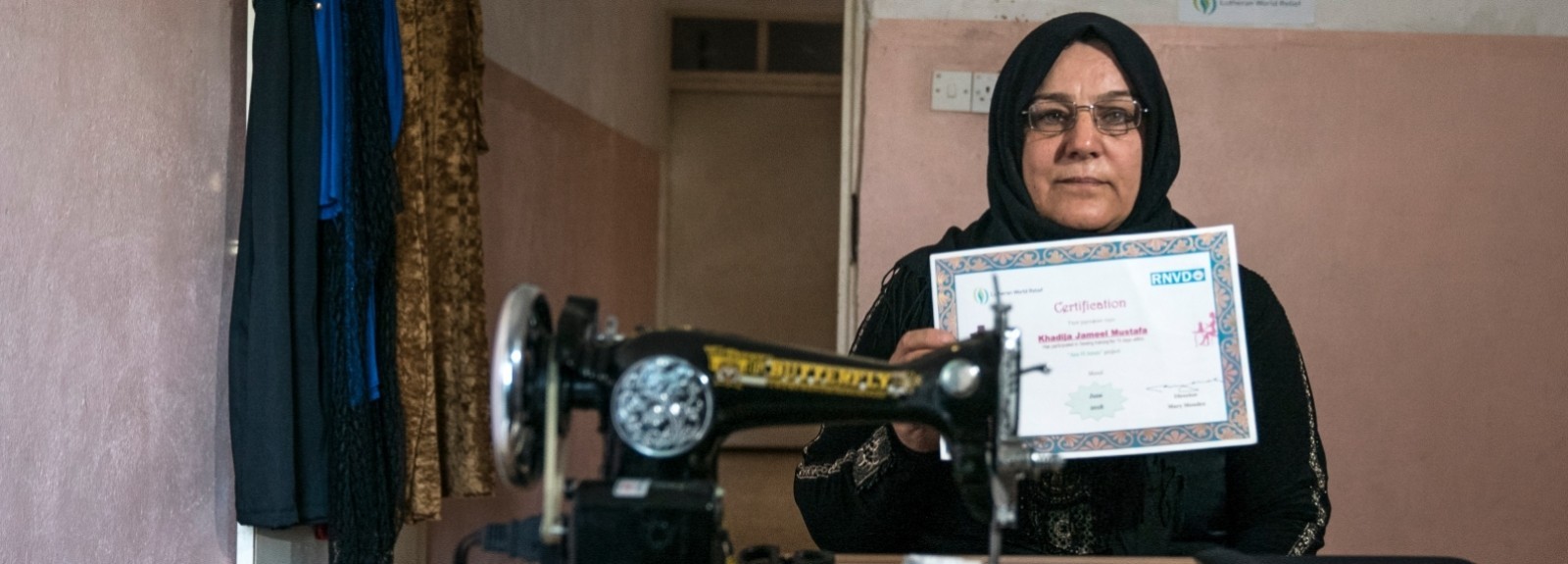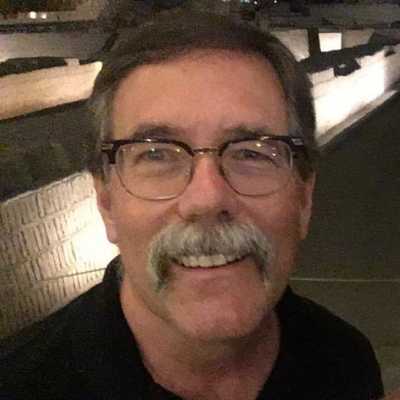Khadija Jameel Mustafa and her family lost nearly everything during the bitter battle to liberate the historic Old City of Mosul, Iraq, from the Islamic State's 3-year reign of terror.
They had to flee from their home, which was destroyed in the battle. The extreme violence of the bombing and street-to-street fighting killed 18 members of her extended family. One of her sons was shot in the leg.
And her husband’s taxi, the family's source of income, was crushed by falling debris.
“It was parked in the street,” Khadija says. “During the bombing, a wall fell on my husband’s car and we lost it.”
Khadija, 46, needed to replace the lost income and help her husband protect and support their children. With Mosul in ruins, there were few opportunities for employment.
Thanks to your generosity, help was literally around the corner. Your gifts support three community centers in the devastated neighborhoods of West Mosul, operated by our trusted local partner, RNVDO. The community centers, sanctuaries for the city’s traumatized residents, are reassuringly named Ana-fi-Aman, Arabic for “I Am Safe.”
The centers offer vocational training in a variety of trades including sewing, mobile phone repair, computer skills and hair styling that will help people create their own jobs. The centers also provide much-needed psychosocial trauma counseling for children and teens, helping them to express and process their emotions and fears through art, storytelling, music, dance and other activities.
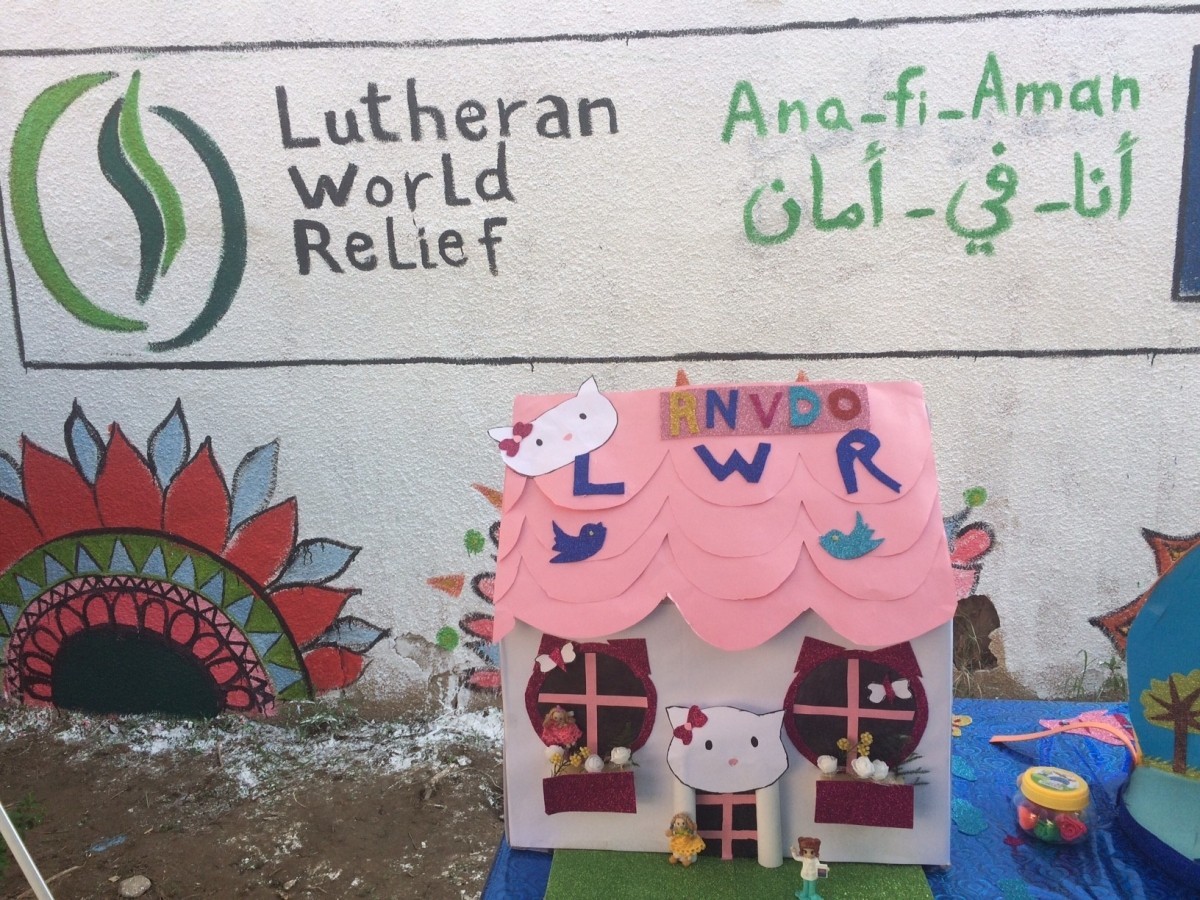
The wall in the garden of one of the three centers funded by Lutheran World Relief and run by RNVDO in Mosul.
For Khadija, who liked to sew as a hobby, the opportunity was a blessing. She knew that with some training she could start a small dress-making business in her home.
Khadija appreciated not only that the sewing class was offered, but that it was free.
“Every training I wanted to go to, they wanted a lot of money for it,” she says. “But when I moved to this neighborhood, I heard that one of the NGOs opened a free sewing training. So I joined it, and I learned a little bit about it,” she says, adding with a shy smile: “And now I’m good at it.”
Khadija now sews with the machine she received as a prize for finishing at the top of her class. She sews her own dress designs and is fulfilling several requests for school uniforms, which are once again in demand.
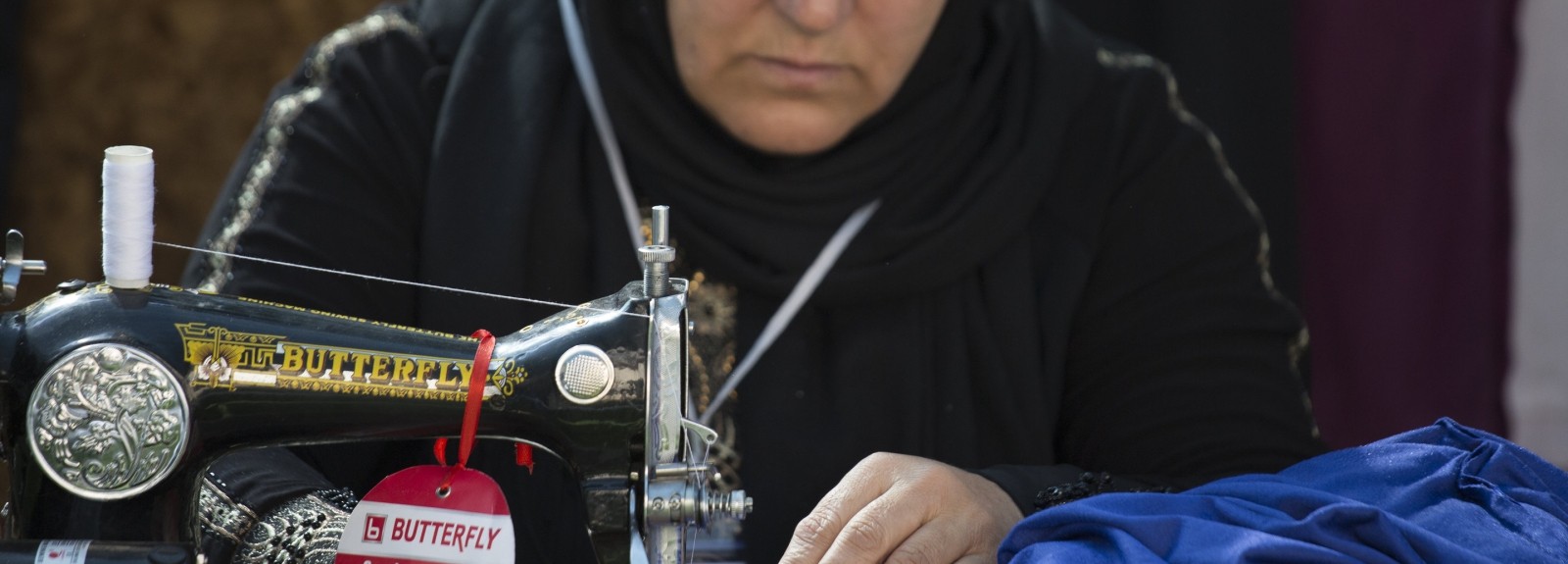
Khadija makes about $17 a week, enough for the family to live on, supplementing what her husband makes by helping his brother deliver steel tanks. Her small business means her son can concentrate on his studies, instead of working with his father. She also supports a daughter studying agronomy in college.
Khadija says she now has hope for the future, for her family and for her healing city.
“I hope that we can live in peace and for my sons and daughters to complete their education and be successful in life,” she says. “And for reconstruction and stability in Mosul. That’s all I want.”
You can help
Photos by Brian J. Clark
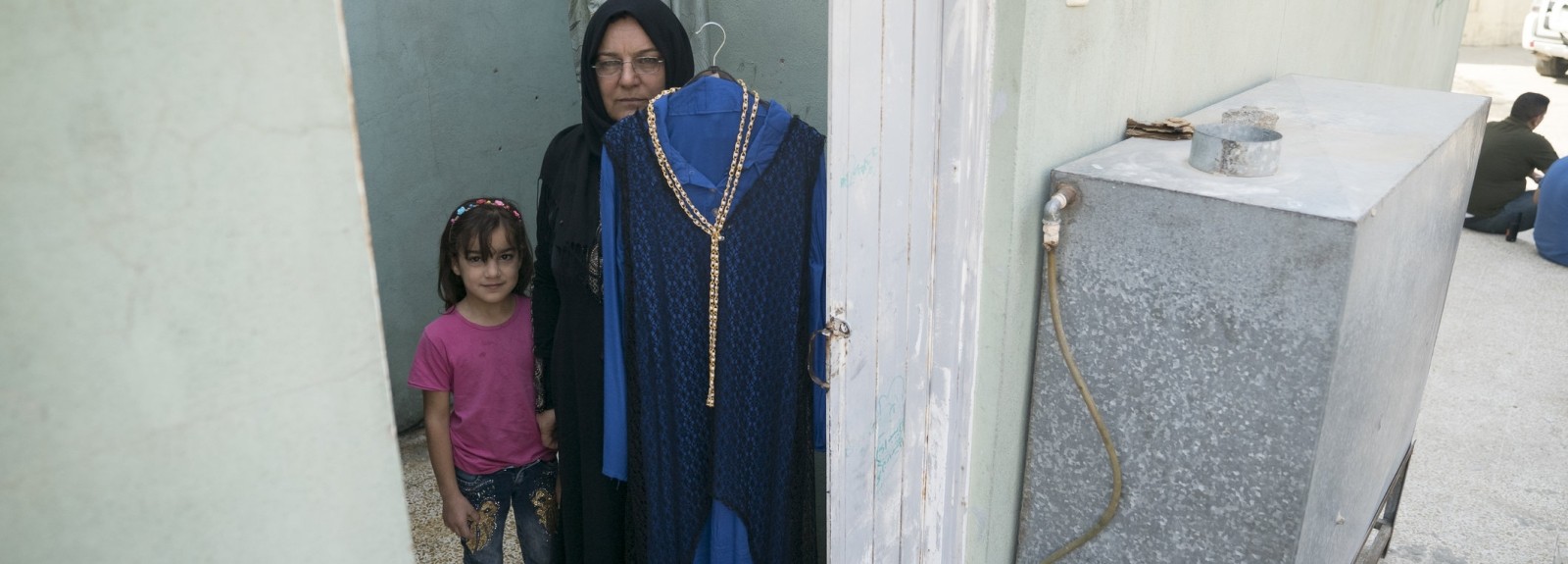
Khadija Jameel Mustafa with her youngest daughter holding her favorite dress that she made.


